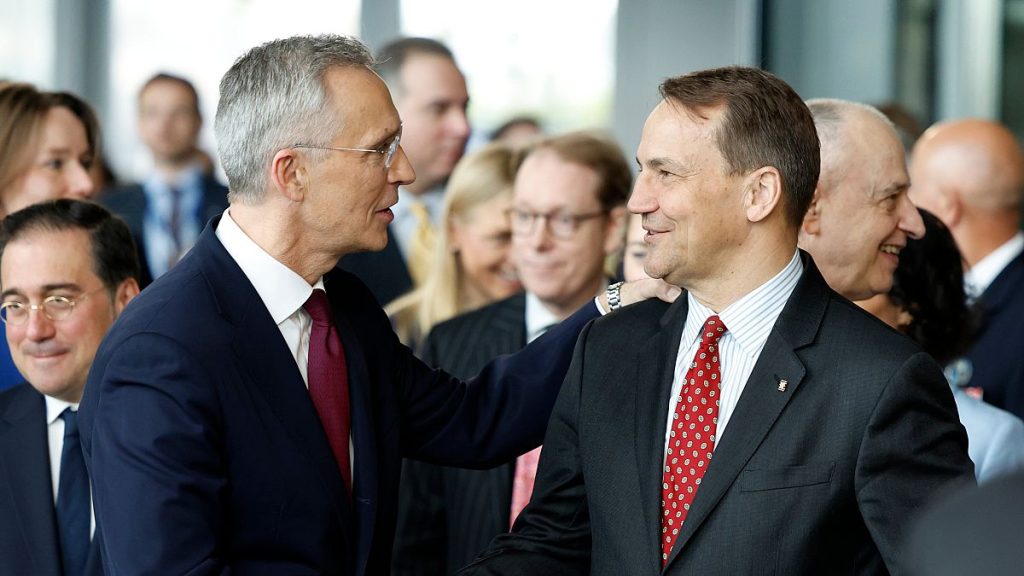Poland’s Foreign Minister Radek Sikorski emphasized the need for NATO to upgrade its defenses in the face of a potential Russian attack, stating that such an attack would ultimately lead to defeat for Moscow. Sikorski outlined the new foreign policy direction of Prime Minister Donald Tusk’s government, expressing a desire for Poland to join the group of countries shaping the agenda of the European Union. The shift in government from the right-wing Law and Justice party to Tusk’s administration marked a move towards prioritizing trans-Atlantic cooperation and European integration, as opposed to a confrontational stance towards the EU and Germany, as seen in the previous government’s approach.
Sikorski highlighted Poland’s role as a member of NATO and the European Union, situated on the eastern flank of both organizations with borders shared with Russia, Belarus, and Ukraine. He emphasized the importance of both trans-Atlantic cooperation and European integration in ensuring Poland’s development and security, advocating for a balanced approach to relations between major global players. The previous Law and Justice government’s stance of confrontation with Germany was criticized, with Sikorski stressing the significance of maintaining an amicable relationship with Poland’s neighbors.
Poland’s international relations have been a focus for the Tusk government, with recent visits from NATO Secretary General Jens Stoltenberg and British Prime Minister Rishi Sunak. Sunak announced a significant increase in military aid to Ukraine, reflecting a commitment to supporting the country in its conflict with Russia. Additionally, the British government pledged to allocate 2.5% of its GDP annually towards defense spending by the end of the decade, demonstrating a shared commitment to bolstering security measures within the region. Poland’s strategic location as a crucial hub for Western weapons destined for Ukraine further underscores its significance in the broader geopolitical landscape.
The redirection of Poland’s foreign policy towards a more cooperative and integrative approach with both NATO and the European Union signals a desire for greater global engagement and responsibility. Sikorski’s speech outlined a vision of Poland as a proactive player in addressing global challenges while maintaining strong ties with key allies. The call for enhanced defenses within NATO reflects a recognition of the evolving security threats facing the region, particularly in light of escalating tensions with Russia. By positioning itself as a key partner in promoting stability and security, Poland seeks to play a proactive role in shaping the future trajectory of European geopolitics.
The emphasis on fostering strong relations with neighboring countries such as Germany underscores Poland’s commitment to promoting stability and cooperation within the region. By advocating for a balanced approach to foreign policy that prioritizes both trans-Atlantic and European partnerships, Poland aims to navigate the complexities of international relations while safeguarding its own interests. The Tusk government’s positioning of Poland as a pivotal player in shaping the European agenda reflects a broader commitment to enhancing the country’s role on the global stage.
In conclusion, Poland’s evolving foreign policy under the Tusk government reflects a strategic shift towards greater cooperation and integration within the European and trans-Atlantic frameworks. The emphasis on bolstering defenses within NATO, maintaining strong ties with key allies, and supporting regional security efforts underscores Poland’s commitment to promoting stability and responsibility in the face of evolving geopolitical challenges. By positioning itself as a proactive player in addressing global issues and fostering strong partnerships, Poland seeks to play a pivotal role in shaping the future trajectory of European geopolitics while safeguarding its own interests within the region.













